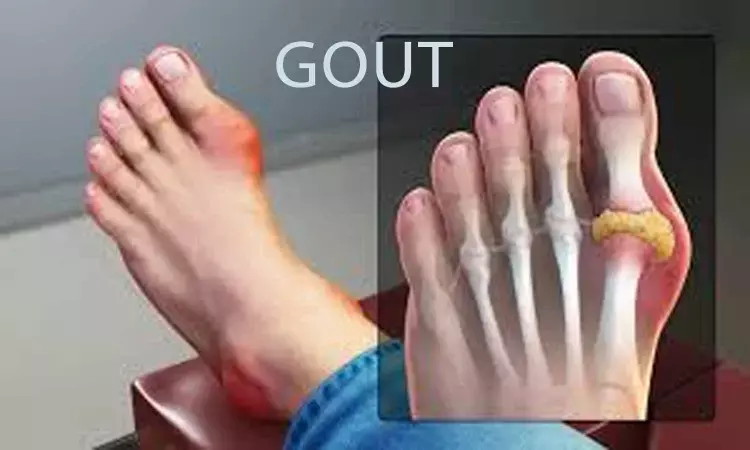- Home
- Medical news & Guidelines
- Anesthesiology
- Cardiology and CTVS
- Critical Care
- Dentistry
- Dermatology
- Diabetes and Endocrinology
- ENT
- Gastroenterology
- Medicine
- Nephrology
- Neurology
- Obstretics-Gynaecology
- Oncology
- Ophthalmology
- Orthopaedics
- Pediatrics-Neonatology
- Psychiatry
- Pulmonology
- Radiology
- Surgery
- Urology
- Laboratory Medicine
- Diet
- Nursing
- Paramedical
- Physiotherapy
- Health news
- Fact Check
- Bone Health Fact Check
- Brain Health Fact Check
- Cancer Related Fact Check
- Child Care Fact Check
- Dental and oral health fact check
- Diabetes and metabolic health fact check
- Diet and Nutrition Fact Check
- Eye and ENT Care Fact Check
- Fitness fact check
- Gut health fact check
- Heart health fact check
- Kidney health fact check
- Medical education fact check
- Men's health fact check
- Respiratory fact check
- Skin and hair care fact check
- Vaccine and Immunization fact check
- Women's health fact check
- AYUSH
- State News
- Andaman and Nicobar Islands
- Andhra Pradesh
- Arunachal Pradesh
- Assam
- Bihar
- Chandigarh
- Chattisgarh
- Dadra and Nagar Haveli
- Daman and Diu
- Delhi
- Goa
- Gujarat
- Haryana
- Himachal Pradesh
- Jammu & Kashmir
- Jharkhand
- Karnataka
- Kerala
- Ladakh
- Lakshadweep
- Madhya Pradesh
- Maharashtra
- Manipur
- Meghalaya
- Mizoram
- Nagaland
- Odisha
- Puducherry
- Punjab
- Rajasthan
- Sikkim
- Tamil Nadu
- Telangana
- Tripura
- Uttar Pradesh
- Uttrakhand
- West Bengal
- Medical Education
- Industry
Patients with obstructive sleep apnea more likely to have gout, study finds

Australia: Researchers have found in a new study that gout is more prevalent in patients with either diagnosed or suspected obstructive sleep apnea (OSA). Also, gout patients are more likely to report suffering from insomnia, restless leg syndrome, and worry about their sleep.
The study has been published in the journal BMC Rheumatology.
Gout is the most common prevalent inflammatory arthropathy and is the most common form of inflammatory arthritis in men. It is associated with co-morbidities including cardiovascular disease and metabolic syndrome. Obstructive sleep apnoea, which is also associated with cardiovascular morbidity, is also very common.
Against the above background Julia New-Tolley, The Queen Elizabeth Hospital, Woodville, SA, Australia, and colleagues aimed to determine if there is an association between gout and OSA in a representative Australian adult population. And they also explored associations between gout and patient-reported sleep outcomes.
The study was designed as a cross-sectional national online survey of a representative sample of Australian adults > 18 years assessed self-reported doctor-diagnosed OSA, insomnia, and patient-reported sleep outcomes. Possible undiagnosed OSA was estimated using self-reported frequent loud snoring and witnessed apnoeas. Participants self-reported physician-diagnosed gout and other health conditions. Multivariable logistic regression analyses were performed for both objectives. Odds ratios with 95% confidence intervals were reported.
The results of the study were found to be:
• Out of the survey, a total of 1948 participants of whom 126 (6.5%) had gout and 124 (6.4%) had diagnosed sleep apnoea.
• After adjusting for age, body mass index (BMI), sex, alcohol intake, and the presence of arthritis, those with obstructive sleep apnoea diagnosed on polysomnography it was found there were twice as likely to report having gout compared to those without. (OR = 2.6).
• Additionally, participants with symptoms suggestive of sleep apnoea were also found to be twice as likely to have gout compared to those without (OR = 2.8).
• They also found a higher likelihood of restless legs syndrome, insomnia and worry about sleep in patients with gout.
Tolley and team concluded that "Diagnosed and suspected OSA are associated with higher likelihood of gout. Participants with gout are also more likely to report suffering from restless legs syndrome, insomnia, and worry about their sleep. Given the morbidity associated with sleep problems, we should be vigilant regarding sleep health in our patients with gout."
For further information: New-Tolley J, Reynolds AC, Appleton SL, et al. "Sleep disorders and gout in Australian adults." BMC Rheumatol. 2021;5(1):30. doi:10.1186/s41927-021-00199-y
Medical Dialogues consists of a team of passionate medical/scientific writers, led by doctors and healthcare researchers. Our team efforts to bring you updated and timely news about the important happenings of the medical and healthcare sector. Our editorial team can be reached at editorial@medicaldialogues.in.
Dr Kamal Kant Kohli-MBBS, DTCD- a chest specialist with more than 30 years of practice and a flair for writing clinical articles, Dr Kamal Kant Kohli joined Medical Dialogues as a Chief Editor of Medical News. Besides writing articles, as an editor, he proofreads and verifies all the medical content published on Medical Dialogues including those coming from journals, studies,medical conferences,guidelines etc. Email: drkohli@medicaldialogues.in. Contact no. 011-43720751


